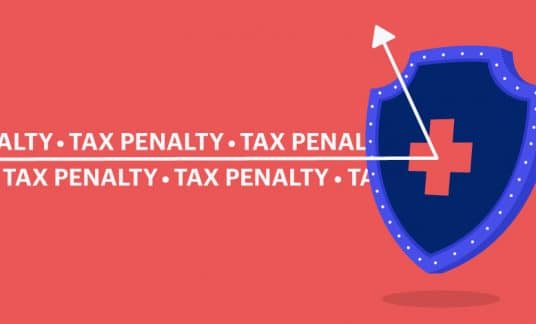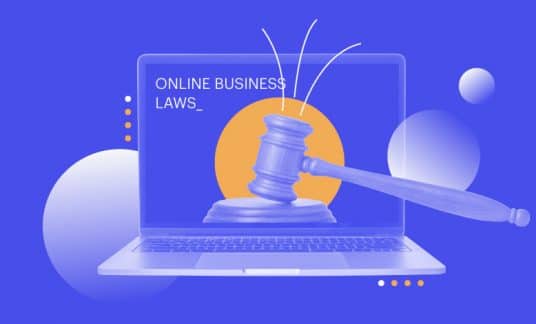Owning and operating a business can expose the owner to countless business and personal risks. The business can be subject to customer claims, lawsuits from third parties and damages to others caused by your employees, such as being at fault in vehicle accidents while working.
As a business owner, you make decisions every day that put your business’s assets at risk for the purpose of making a profit. That’s part of your responsibilities as an owner. Without having proper asset protection strategies in place, any of these risks could result in losing both your business assets and personal assets, such as your home, savings accounts and personal vehicles.
You don’t want to lose your personal assets in the event your business defaults on a debt or is the target of a lawsuit. Here are the best asset protection strategies you can use to safeguard your personal assets.
What Is Asset Protection?
Asset protection is about taking certain steps to protect your personal assets from creditor claims on your business.
To have effective shelters, you must start your asset protection strategies before a claim or liability is charged. This is because anything you try to do to protect your personal assets after a claim has been filed can be reversed by the “fraudulent transfer” law.
The sooner you start, the better. The first step is to set up your business as a separate entity.
Form a Separate Business Entity
For many who first started their business, they probably used the easiest business form to set up: a sole proprietorship.
The simplicity of a sole proprietorship is useful in the beginning, but it provides absolutely no protection for one’s personal assets. Business assets and personal assets are one and the same. This means your personal bank accounts and your spouse’s car can be seized by creditors if your business defaults on a loan.
The first step to protect your personal assets is to form a new business entity and operate your business independently from your personal activities. Obtain an employer identification number (EIN) from the Internal Revenue Service for your business.
You have several choices for the type of business structure to form. You can set up your business as a C corporation, S corporation or a limited liability company (LLC). An LLC is the most popular choice of business owners because it’s easy to set up and requires less documentation and reporting to government agencies.
In the event your LLC defaults on a debt, its creditors can attach its bank accounts and any other assets owned by the business. However, these LLC creditors can’t seize any of the owner’s personal assets such as homes, cars and bank accounts. That’s the wall of protection that an LLC provides between business assets and the owner’s personal assets.
One exception to the protection of personal assets provided by an LLC are those businesses employing professionals, such as real estate agents, dentists and lawyers. For these businesses, an LLC can’t shield owners’ personal assets because they work for the business by providing a service. As a result, they are open to lawsuits for malpractice that could expose their business and personal assets to seizure.

Operate Your Business Independently
After forming your LLC, run your business independently. Keep separate financial records for your LLC and your personal activities. Don’t mix business and personal transactions together. For example, suppose you go to the grocery store to buy drinks and snacks for an employee meeting, and you also buy meat for tonight’s dinner at home. You should pay for your business and personal items with separate cards and get separate receipts. It takes extra work, but you have to take these steps to maintain a clear separation of business and personal transactions.
You don’t want to mix business and personal transactions in the same accounts and have a court decide that your LLC is a sham. This ruling could result in you being held personally liable for your business’s debts and obligations.
Avoid Personal Guarantees
One opening that can make you liable for your LLC’s debts is if you personally guarantee the loans for your LLC. The best practice is to never personally guarantee any of your business’s debts or sign any contracts personally. Being able to avoid personal guarantees when you first start a business can be difficult, but as soon as your business grows and increases its capital, you should look to remove those personal guarantees.
One area where an LLC may not protect your personal assets is with the payment of employee payroll taxes to the IRS. Courts have ruled in several cases where an LLC has been designated as a “pass through” entity for tax purposes that the owners could be personally liable for unpaid payroll taxes. So, if you get into problems with unpaid payroll taxes, you should consult either your attorney or your accountant to determine your personal liability.
Buy Liability and Professional Insurance
An LLC doesn’t protect you from wrongdoing or any damages that you, as an individual, cause to third parties.
Look at your business and identify those areas where you should obtain insurance coverage for both the business and yourself personally. For instance, most businesses should have coverage for sexual harassment, employee discrimination, professional malpractice, breach of contract and claims from sales of faulty products. While most of the problems in these areas will center on the business, they can sometimes involve the owner and open the door to a claim against the owner’s personal assets.
On top of these types of insurance coverage, you should also consider taking out a larger umbrella insurance policy to cover any catastrophic claims. The premiums on umbrella policies aren’t particularly high and can provide coverage for several million dollars in the event of an especially devastating situation.
Make Sure Contracts Are Properly Authorized
Always make sure you are signing any contracts or leases on behalf of your business, not yourself individually. For example, if you are designated as the chief executive of your business, the signature line should have your name alongside your tile.
One of the easiest ways for a creditor to penetrate the corporate veil is to spot a document that you have inadvertently signed or initialed as an individual rather than as an officer of your business.

Invest Your Profits in Certain Assets
Investing the earnings from your LLC in certain personal assets provides another layer of protection. One of the best is the homestead exemption for your primary residence offered by many states up to certain dollar limits. For example, Florida’s homestead law is especially attractive because it provides protection from creditors for an unlimited amount of money. Other states aren’t quite as generous, but investing in your primary home is a good way to protect personal assets.
If your state doesn’t have an attractive homestead exemption allowance, you can consider titling your home with your spouse as “tenancy by the entirety.” This means both you and your spouse have indivisible interests in your home. This way, if a creditor only names one of you in a lawsuit, the other spouse can’t be forced to sell their interest in the house.
Also look at tax-qualified retirement plans, such as IRAs and 529 college savings plans, and the protection provided to annuity balances and the cash value of life insurance policies. The amount of shelter varies by state, so you’ll have to check your state’s laws to learn your options and the degree of protection.
Set Up a Trust
Another option is to put your home, bank accounts, investments and other properties in an irrevocable trust. In this case, the trust owns your personal assets. You’ll designate an independent trustee who will administer the trust for the benefit of your beneficiaries, such as your spouse or children. Although you’re giving up control of your personal assets, the trust will protect these assets from creditors and will pass them to your designated beneficiaries in the future.
Not all states require you to give up control. Some states will allow you to name yourself as the beneficiary and retain some degree of control without jeopardizing the trust’s protection of personal assets from creditors. State laws vary greatly, so it would be advisable for you to consult with an estate planning lawyer to learn your state’s specific regulations.
Keep in mind setting up a trust can’t be a last-minute move. It must be done several years before, or the courts may consider the transfer of personal assets as fraudulent and reverse the move. Any steps you take for your asset protection strategies must be in place before any claims or judgments show up against your LLC.
The longer your asset protection strategies have been in place, the stronger they will become. Asset protection is more than taking one step. It’s an evaluation of your business and its specific needs.










